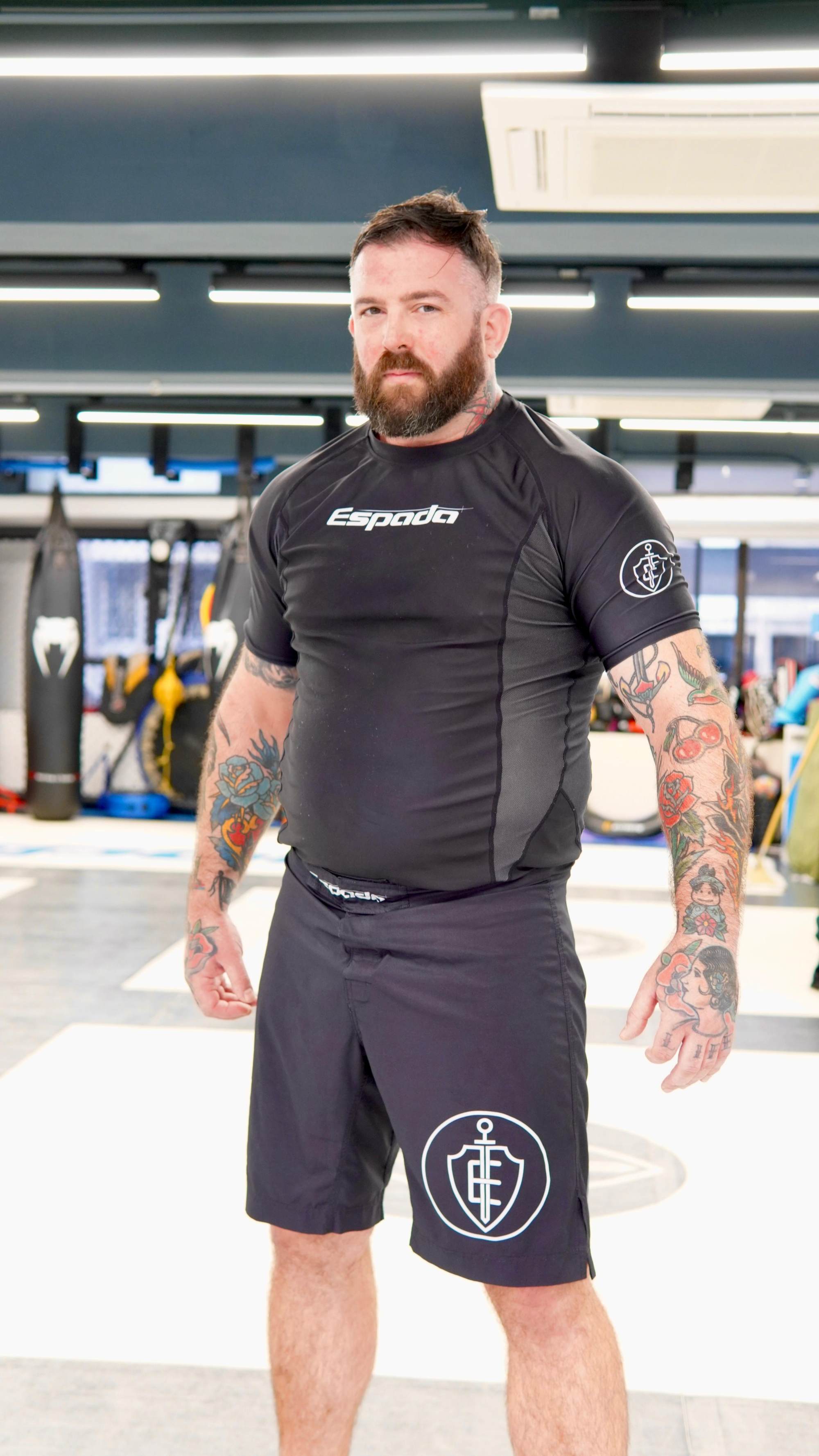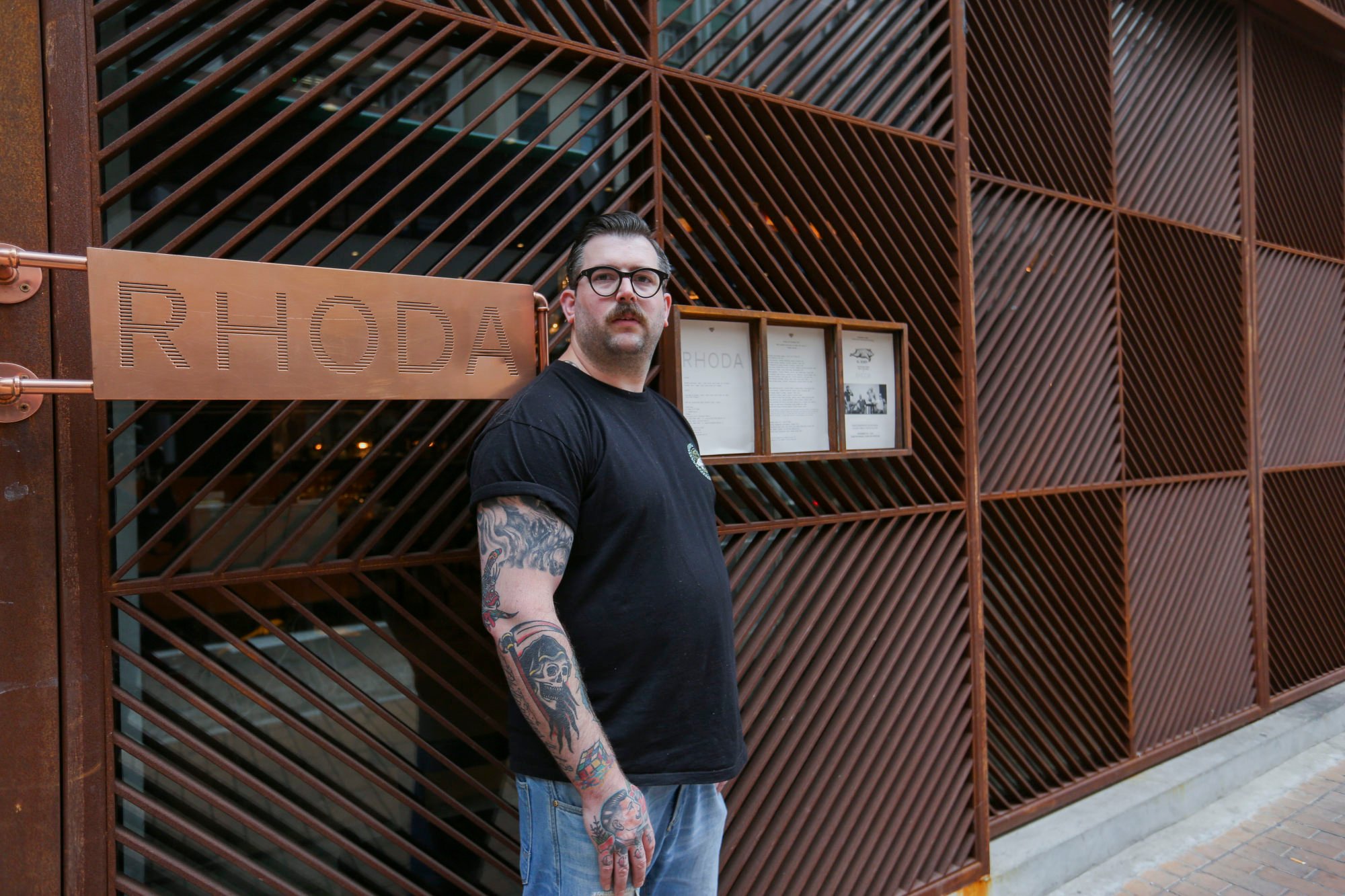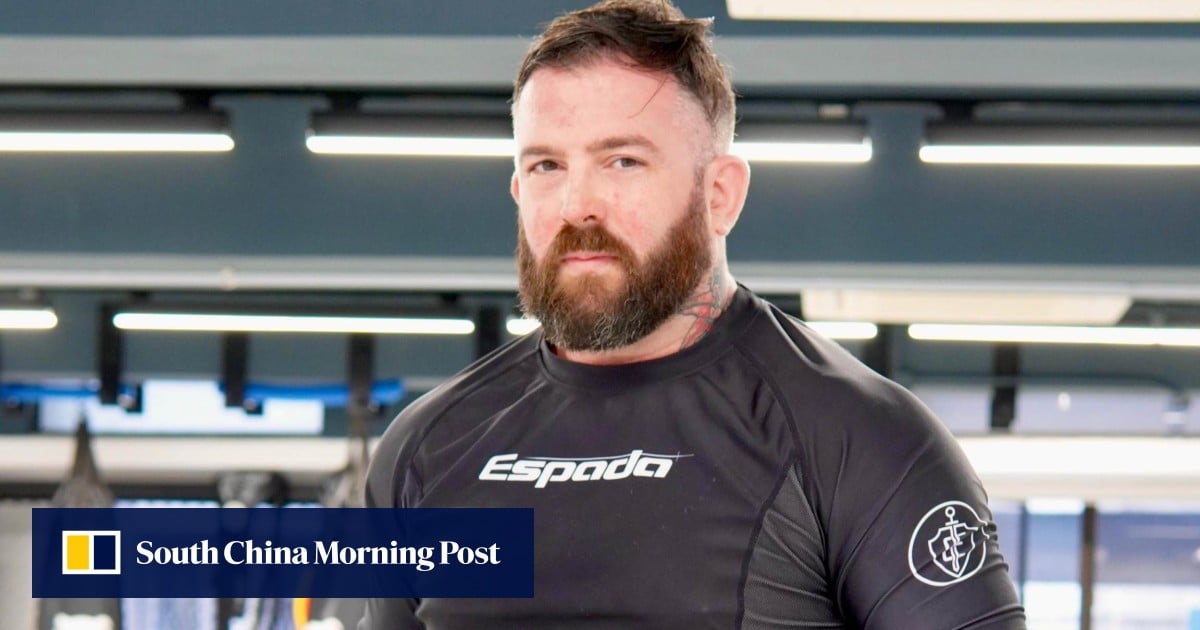Chef Nathan Green of Rex Wine & Grill, in Hong Kong’s Central neighbourhood, and Kilo, in Tsim Sha Tsui, will be swapping his chef whites for rash guards to compete in a Brazilian jiu-jitsu prize challenge on December 11.
According to Green, the ultra heavyweight fight is a friendly one. “My opponent Ollie [lawyer Oliver Welch] is my friend. Originally this was supposed to be a fight between two purple belts around the same age and weight class, but he just got promoted to brown belt two months ago.”
In Brazilian jiu-jitsu, purple is the middle-ranking belt colour, above white and blue; brown ranks above purple but below black – which is the most advanced.
The fight has been organised by 4 Stripes, an organisation founded in 2016 by Hong Kong jiu-jitsu brown belt JK Jok.

The challenge is a regular event to offer jiu-jitsu practitioners an occasion to meet fellow grapplers from different gyms through tournaments and competitions.
The events are live-streamed with commentary; individual trial tournaments are conducted in Hong Kong, Guangzhou and Shanghai.

As he has progressed with his jiu-jitsu training since then, the 41-year-old has found support from the grappling community and his gym more important than ever.
Little Bao chef on how diet and exercise changed her life
Little Bao chef on how diet and exercise changed her life
“Our industry is going through a very rough time,” says the chef of Hong Kong’s bar and restaurant scene. “Everything’s up and down and no one knows where they stand. It’s very hard to plan anything.
“I’ve been happy to see a few chefs and restaurateurs start picking up jiu-jitsu and I’ve been trying to get some of my mates to come down [to the gym] because everyone’s stressed and training is such a release.”
Green took up the martial art in 2005, but until recently his progress had been slow.

“I’d been a white belt [the lowest rank] for 12 years,” he says. “It was hard for me to get consistency in training because of my work schedule.
Unfortunately, boxing was a physical mismatch with Green’s profession.
Weight loss unlocked? Gene variant may help tackle obesity, researchers say
Weight loss unlocked? Gene variant may help tackle obesity, researchers say
“I broke my hand quite badly a few times and I need my hand for work. This was in 2018, I was in bad shape and my mental health was suffering,” he says.
“That was when my professors [jiu-jitsu black belt instructors], Rodrigo Caporal and Nosh Khan, told me to get back into jiu-jitsu. They gave me something to be disciplined for and the training provided structure. I was always most disciplined when I was training.
“I’ve recently switched gyms and that has made a huge difference. Rain, hail or shine, I’m training at 3pm every day,” Green says.
Workers’ stress highlighted in Hong Kong Mental Health Restaurant Week
Workers’ stress highlighted in Hong Kong Mental Health Restaurant Week
The most important aspect of jiu-jitsu training isn’t just the physical part, he says; it’s also the camaraderie and mental acuity the training provides.
“Nosh, my main professor, is a 105kg black belt and he doesn’t let me win when I fight him. But when I fight other guys at a lower belt level I do well because he put me through that adversity,” says Green.
“It’s such a beautiful sport because you’re just facing adversity every day and as you’re getting better, your training partner is improving as well. I look forward to facing Ollie and seeing how we do head to head.”

